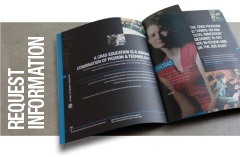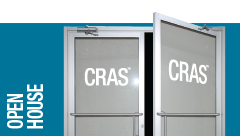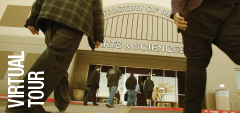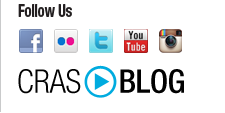Our website has moved, click here to visit our new site at CRAS.edu


ADMISSIONS





Students with Disabilities
The Conservatory attempts to make the MRP II Program accessible to all individuals, in compliance with Section 504 of the Rehabilitation Act of 1973 and Title III of the Americans with Disabilities Act of 1990. The mission of the school is to train individuals for entry level positions in the audio industry.The Conservatory strives to create a learning environment in which all people with disabilities:
Have equal access to courses, programs and services offered.
Have an equal opportunity to learn and receive reasonable accommodations and/or auxiliary services when applicable.
Have appropriate confidentiality of all information regarding their disability in line with the FERPA and Privacy Act policies.
For students with disabilities the Conservatory makes every effort to assist them in achieving these goals. Students with disabilities have the option of requesting special assistance, accommodations and/or auxiliary services if necessary. All requests will be reviewed by Administration to determine if the requested accommodations can be granted and specifically what the scope of the accommodations will include.
It is strongly recommended that prior to investing time and monetary resources; a prospective student with a known disability contacts their Admissions Representative and/or Director of Admissions to further discuss the potential for success in the audio industry.
Admissions requirements for all students are the same, regardless of disability or lack thereof. It must be understood that accommodations for disabilities are meant to assure education experience and opportunity. Any accommodations deemed necessary and reasonable will be made on a case-by-case basis, will not necessarily incorporate all changes requested and will only be made following provision of proof of such disability.
Procedure for Requesting Accommodations
Students seeking accommodations should notify their Admissions Representative or the Director of Admissions immediately of any special needs, requirements or requests before enrolling in a program of study.
To request accommodations, student must provide the following:
- Written description of the extent and nature of the disability.
- Current medical certification of disability from doctor or other appropriate professional.
- Written document stating any/all accommodations, auxiliary aids and/or services requested.
All required documentation must be received by the Conservatory no later than 45 days prior to student’s projected start date. Accommodations cannot be applied to circumstances of past failures or difficulties in courses and will only be applied to future course activities.
All documents will be reviewed and evaluated by Administration. A reply will be sent to the prospective student within 10 business days of receipt of all complete documentation defining which accommodations will or will not be allowed/granted. If the submitted information is inadequate to formulate a final decision, Administration reserves the right to request further information from prospective student in order to provide the most accurate and fair decision as possible.
Once the Administrator has issued the final decision:
- A document will be drafted specifically outlining the granted accommodations.
- Both student and Administrator will sign and date this document.
- The signed document will be placed in student’s permanent file.
- A copy of accommodation document will be given to the student.
- At the beginning of each new class (either new subject or new Instructor) student will be required to show accommodation document to their Instructor. This ensures that each Instructor has been fully informed of all specific accommodations accepted.
To request accommodations, student must provide the following:
- Written description of the extent and nature of the disability.
- Current medical certification of disability from doctor or other appropriate professional.
- Written document stating any/all accommodations, auxiliary aids and/or services requested.
All required documentation must be received by the Conservatory no later than 45 days prior to student’s projected start date. Accommodations cannot be applied to circumstances of past failures or difficulties in courses and will only be applied to future course activities.
All documents will be reviewed and evaluated by Administration. A reply will be sent to the prospective student within 10 business days of receipt of all complete documentation defining which accommodations will or will not be allowed/granted. If the submitted information is inadequate to formulate a final decision, Administration reserves the right to request further information from prospective student in order to provide the most accurate and fair decision as possible.
Once the Administrator has issued the final decision:
- A document will be drafted specifically outlining the granted accommodations.
- Both student and Administrator will sign and date this document.
- The signed document will be placed in student’s permanent file.
- A copy of accommodation document will be given to the student.
- At the beginning of each new class (either new subject or new Instructor) student will be required to show accommodation document to their Instructor. This ensures that each Instructor has been fully informed of all specific accommodations accepted.
Projected Success in the Audio Industry
The Conservatory’s mission and philosophy dictate the main focus of the program is to prepare students for successful employment opportunities in the audio industry. The work environment in which our graduates commonly work demands a full range of physical and mental faculties for career success. Persons with disabilities should review the following sections carefully when making the decision to enter into the field of audio engineering to better assess if this industry will be beneficial to them.
Job Tasks
While there are exceptions, most jobs require the ability to perform the following tasks:
- Record speech, music and other sounds on both digital and analog recording media/equipment.
- Setup and/or tear down equipment for events including but not limited to recording sessions, live sound performances, mobile recording events, on-location (field) recording assignments.
- Setup and/or tear down may include activities such as (but not limited to):
- Loading/unloading of audio equipment from studios, mobile trucks, touring trucks. Equipment loading may include lifting in excess of 50 lbs.
- Selecting and setting up microphones and other musical equipment.
- Carrying, connecting, tracing and wrapping of various cables.
- Documenting settings on analog/digital equipment for later recall.
- Use of analog and/or digital recording consoles, computer based recording systems, outboard processors.
- Troubleshooting signal flow, isolating and resolving issues with equipment and/or software.
- Record speech, music and other sounds on both digital and analog recording media/equipment.
- Setup and/or tear down equipment for events including but not limited to recording sessions, live sound performances, mobile recording events, on-location (field) recording assignments.
- Setup and/or tear down may include activities such as (but not limited to):
- Loading/unloading of audio equipment from studios, mobile trucks, touring trucks. Equipment loading may include lifting in excess of 50 lbs.
- Selecting and setting up microphones and other musical equipment.
- Carrying, connecting, tracing and wrapping of various cables.
- Documenting settings on analog/digital equipment for later recall.
- Use of analog and/or digital recording consoles, computer based recording systems, outboard processors.
- Troubleshooting signal flow, isolating and resolving issues with equipment and/or software.
Skill Assessment
A career in audio engineering is very demanding both mentally and physically. While there are certain exceptions, in order to succeed in school and furthermore a career in the audio field, persons must typically possess the following skills:
- Active Listening - giving full attention to what other people are saying, taking time to understand the points being made and asking questions for clarification as appropriate.
- Speaking - talking to others to convey information effectively.
- Critical Thinking - using logic and reasoning to identify alternative solutions, conclusions and approaches to problems.
- Reading Comprehension - understanding written sentences and paragraphs in work related documents, session documentation and equipment manuals.
- Complex Problem Solving - identifying complex problems and reviewing all necessary information to develope and evaluate options and implement solutions.
- Active Learning - Understanding the implications of new information for both current and future problem-solving, troubleshooting and decision making.
- Operation and Control - controlling operations of equipment or systems.
- Troubleshooting - determining causes of operating errors and deciding what to do about it.
- Equipment Selection - determining the kind of tools and equipment needed to complete a job safely and efficiently.
- Active Listening - giving full attention to what other people are saying, taking time to understand the points being made and asking questions for clarification as appropriate.
- Speaking - talking to others to convey information effectively.
- Critical Thinking - using logic and reasoning to identify alternative solutions, conclusions and approaches to problems.
- Reading Comprehension - understanding written sentences and paragraphs in work related documents, session documentation and equipment manuals.
- Complex Problem Solving - identifying complex problems and reviewing all necessary information to develope and evaluate options and implement solutions.
- Active Learning - Understanding the implications of new information for both current and future problem-solving, troubleshooting and decision making.
- Operation and Control - controlling operations of equipment or systems.
- Troubleshooting - determining causes of operating errors and deciding what to do about it.
- Equipment Selection - determining the kind of tools and equipment needed to complete a job safely and efficiently.
Abilities Assessment
While there are certain exceptions, in order to succeed in school and furthermore a career in the audio field, persons must typically possess the following abilities. Persons with disabilities in any of the following areas are urged to further discuss this with their Admissions Representative or Director of Admissions to determine the potential impact this may have on their success:
- Near Vision - the ability to see details at a close range (eg. reading dial or meter settings on consoles and other equipment)
- Oral Expression - the ability to communicate information and ideas in speaking so others will understand.
- Oral Comprehension -the ability to listen and understand information and ideas presented through spoken words and sentences.
- Written Expression - the ability to communicate information and ideas in writing so others can understand (eg session/studio documentation).
- Hearing Sensitivity - the ability to detect or tell the differences between sounds that vary in pitch and loudness.
- Information Ordering - the ability to arrange things or actions in a certain order or pattern (eg: Signal Flow, live sound color coded audio connections).
- Selective Attention - the ability to concentrate on a task over a period of time without being distracted.
- Problem Sensitivity - the ability to tell when something is wrong or likely to go wrong. (eg: many audio situations include risk of physical harm via high voltage power, feedback and other high amplitude audio related potentials)
- Auditory Attention - the ability to focus on a single source of sound in the presence of other distracting sounds.
- Sound Localization - the ability to tell the direction from which a sound originated.
- Deductive Reasoning - the ability to apply general rules to specific problems to produce answers that make sense.
- Finger Dexterity - the ability to make precisely coordinated movements of the fingers to grasp, move, manipulate, or assemble small objects. (eg: connecting microphones to stands, connecting cables, patch bays, faders and knobs)
- Time Sharing - the ability to shift back and forth between two or more activities or sources of information.
- Memorization - the ability to remember information such as words, numbers and procedures.
The Conservatory does not offer students with disabilities the following:
- Diagnostic evaluation for disabilities.
- Special classes.
- A reduced standard for academic performance.
- Exemption to graduation requirements.
- Credit for effort in place of demonstrated competence or skill acquisition.
- Near Vision - the ability to see details at a close range (eg. reading dial or meter settings on consoles and other equipment)
- Oral Expression - the ability to communicate information and ideas in speaking so others will understand.
- Oral Comprehension -the ability to listen and understand information and ideas presented through spoken words and sentences.
- Written Expression - the ability to communicate information and ideas in writing so others can understand (eg session/studio documentation).
- Hearing Sensitivity - the ability to detect or tell the differences between sounds that vary in pitch and loudness.
- Information Ordering - the ability to arrange things or actions in a certain order or pattern (eg: Signal Flow, live sound color coded audio connections).
- Selective Attention - the ability to concentrate on a task over a period of time without being distracted.
- Problem Sensitivity - the ability to tell when something is wrong or likely to go wrong. (eg: many audio situations include risk of physical harm via high voltage power, feedback and other high amplitude audio related potentials)
- Auditory Attention - the ability to focus on a single source of sound in the presence of other distracting sounds.
- Sound Localization - the ability to tell the direction from which a sound originated.
- Deductive Reasoning - the ability to apply general rules to specific problems to produce answers that make sense.
- Finger Dexterity - the ability to make precisely coordinated movements of the fingers to grasp, move, manipulate, or assemble small objects. (eg: connecting microphones to stands, connecting cables, patch bays, faders and knobs)
- Time Sharing - the ability to shift back and forth between two or more activities or sources of information.
- Memorization - the ability to remember information such as words, numbers and procedures.
The Conservatory does not offer students with disabilities the following:
- Diagnostic evaluation for disabilities.
- Special classes.
- A reduced standard for academic performance.
- Exemption to graduation requirements.
- Credit for effort in place of demonstrated competence or skill acquisition.
CRAS Grad
Career Opportunities
Career Opportunities
Recording engineer
- Music
- Soundtracks
- Music
- Soundtracks
Game audio designer
- Video games
- Apps
- Mobile audio
- Video games
- Apps
- Mobile audio
Live sound engineer
- Concerts
- Stage monitors
- Concerts
- Stage monitors
Radio production
- Location remotes
- Live radio
- Location remotes
- Live radio
Corporate media tech
- Hotels
- Conference centers
- Boardrooms
- Hotels
- Conference centers
- Boardrooms
TV/video scoring engineer
- Background music
- Voice over/narration
- Background music
- Voice over/narration
Movies
- Foley engineer
- Dialog replacement
- Sound effects
- Foley engineer
- Dialog replacement
- Sound effects
Manufacturer’s specialist
- Product rep
- Product specialist
- Product rep
- Product specialist
Environmental sound design
- Malls
- Airports
- Public spaces
- Malls
- Airports
- Public spaces
Live stage/theater sound
- Musicals
- Drama
- Lectures
- Musicals
- Drama
- Lectures
And more!
